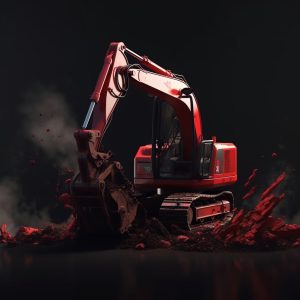When it comes to keeping your equipment in top condition, choosing the right spare parts is crucial. Among the various types of spare parts available, OEM parts are often considered the gold standard. But what exactly are OEM spare parts, and why do they matter? In this article, we’ll delve into the world of OEM spare parts, exploring what they are, how they differ from other types of spare parts, and why they are essential in maintaining the reliability and longevity of your equipment.
Section 1: What are OEM Spare Parts?
OEM stands for “original equipment manufacturer.” OEM spare parts are parts that are made by the same manufacturer as the original parts that came with your equipment. In other words, they are identical to the parts that were installed in your equipment when it was first built. OEM parts are designed and engineered to meet the specific requirements of your equipment, ensuring optimal performance and reliability.
Section 2: How are OEM Spare Parts Different from Aftermarket Parts?
Aftermarket parts are parts that are made by a third-party manufacturer, rather than the original equipment manufacturer. While aftermarket parts may be cheaper than OEM parts, they are not always designed to the same specifications as OEM parts. As a result, they may not fit as well or perform as well as OEM parts. Additionally, aftermarket parts may not come with the same warranty or quality guarantees as OEM parts.
Section 3: The Importance of Using OEM Spare Parts
One of the key benefits of using OEM spare parts is that they are designed specifically for your equipment. This means that they will fit perfectly and function exactly as intended, ensuring optimal performance and minimizing the risk of breakdowns or equipment failures. Additionally, OEM parts are typically made from high-quality materials, which means they are more durable and longer-lasting than aftermarket parts.
Using OEM spare parts can also help you maintain the warranty on your equipment. Many manufacturers require the use of OEM parts in order to maintain the warranty. If you use aftermarket parts and something goes wrong with your equipment, you may find that the manufacturer will not cover the cost of repairs.
Section 4: How to Choose the Right OEM Spare Parts
When it comes to choosing OEM spare parts, there are a few things to keep in mind. First and foremost, you should always purchase your parts from a reputable supplier. This will ensure that you are getting genuine OEM parts that are of the highest quality.
You should also pay close attention to the specifications of the parts you are purchasing. Make sure that the parts are designed for your specific make and model of equipment. This will ensure that they fit properly and function as intended.
Finally, it’s important to consider the cost of the parts. While OEM parts may be more expensive than aftermarket parts, they are often a worthwhile investment in the long run. By using OEM parts, you can ensure the optimal performance and longevity of your equipment, which can save you money in the long run by reducing the risk of breakdowns and equipment failures.
Conclusion: OEM spare parts are a critical component in ensuring the reliability and longevity of your equipment. By using genuine OEM parts that are designed specifically for your equipment, you can ensure optimal performance and minimize the risk of breakdowns or equipment failures. While OEM parts may be more expensive than aftermarket parts, they are often a worthwhile investment in the long run. By choosing OEM parts and purchasing them from a reputable supplier, you can rest assured that you are getting the highest quality parts available.
Check out our other articles for more…









